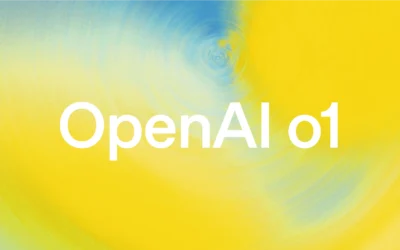Australians’ Growing Concerns About Artificial Intelligence: The Need for Improved Media Literacy

In an era where technology is rapidly transforming every aspect of our lives, artificial intelligence (AI) stands at the forefront of this revolution. While AI promises unprecedented advancements in fields ranging from healthcare to finance, it also brings with it a host of concerns and uncertainties. A recent survey reveals that a significant number of Australians are increasingly worried about the implications of AI, underscoring the urgent need for improved media literacy to navigate this complex landscape.
The Growing Anxiety Around AI
The survey conducted across Australia shows that most Australians are apprehensive about the rapid integration of AI into their daily lives. Concerns range from job displacement to the ethical implications of AI decision-making. This anxiety is not unfounded, as AI continues to challenge traditional notions of privacy, employment, and even what it means to be human.
One of the primary concerns highlighted in the survey is the fear of AI replacing human jobs. With automation and machine learning algorithms becoming more sophisticated, many Australians worry that their jobs might be at risk. This is particularly true in industries like manufacturing, retail, and even professional services, where AI-driven automation is increasingly taking over tasks previously performed by humans.
Another significant concern is the ethical use of AI. Australians are worried about the lack of transparency in AI algorithms and the potential for these systems to make biased or unfair decisions. Whether it’s in law enforcement, hiring processes, or even healthcare, the fear that AI could perpetuate existing inequalities is a major issue that needs addressing.
The Role of Media Literacy
In light of these concerns, the survey points to an essential solution: improved media literacy. Media literacy involves the ability to critically analyze and understand the information presented by the media, including news about AI. As AI continues to shape our world, being media literate will become increasingly important for individuals to make informed decisions about how they interact with and perceive AI technologies.
Improved media literacy can help Australians discern between sensationalist headlines and factual information. It can also equip them with the tools to question the narratives being presented about AI, whether they are overly optimistic or unnecessarily fear-inducing. By understanding how AI works and its potential impacts, individuals can better navigate the changes that AI brings to society.
Moreover, media literacy can empower Australians to engage in informed debates about the ethical and societal implications of AI. As AI continues to evolve, public discourse will play a crucial role in shaping the regulations and policies that govern its use. A population that is well-informed about AI’s capabilities and limitations will be better equipped to advocate for policies that ensure AI is used ethically and for the benefit of all.
The Path Forward
Addressing Australians’ concerns about AI requires a multi-faceted approach. On one hand, there needs to be greater transparency from companies and governments about how AI technologies are being developed and deployed. On the other hand, individuals must be equipped with the skills to critically assess the information they receive about AI.
Educational institutions, media organizations, and tech companies all have a role to play in improving media literacy. Schools and universities can integrate media literacy into their curriculums, ensuring that students are prepared to engage with AI in a thoughtful and informed manner. Media organizations can strive for accuracy and balance in their reporting on AI, avoiding sensationalism and providing context for the stories they cover. Tech companies can also contribute by being more transparent about their AI technologies and providing resources for the public to understand how these systems work.
Conclusion
As AI continues to advance, it is natural for Australians to feel concerned about its impact on their lives. However, these concerns can be mitigated through improved media literacy, which empowers individuals to critically engage with the information they receive about AI. By fostering a society that is informed and thoughtful about AI, Australia can navigate the challenges and opportunities that this transformative technology presents.






